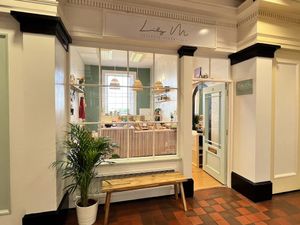JLR to cut back production at Midlands car plants
Production is to halt at two of Jaguar Land Rover's Midlands plants on a number of days into March.
Solihull and Castle Bromwich will stop making the car giant's luxury vehicles for half and full days because of a falling demand for new cars around the world.
The stoppages will not impact on production at JLR's engine manufacturing centre at the i54 to the north of Wolverhampton where 1,300 are employed.
There will be half-day stoppages on Fridays at Lode Lane, Solihull from this week to the end of March with Castle Bromwich seeing production shut down on selected days over a four-week period from the end of February to mid March.
JLR says this is “production balancing” and that the time lost on the factory floor will be used for training staff.
“The external environment remains challenging for our industry and the company is taking decisive actions to achieve the necessary operational efficiencies and align production to current demand conditions.
"We have confirmed that Solihull and Castle Bromwich will make some minor changes to their production schedules to reflect fluctuating demand globally, whilst still meeting customer needs," said JLR in a statement.
Last month, JLR said that 500 jobs would be cut at its Halewood plant as a result of changing the shift system to deliver flexibility efficiencies.
JLR has saw sales in China recover last year, but most other markets wer down.
There was goods news this week with JLR bucking the trend of falling demand for new cars in the UK last month with sales up on January 2019. Jaguar was 9.6 per cent ahead at 2,325 vehicles with Land Rover rising 0.2 per cent to 5,613.
The company says: "Through its ongoing transformation programme, Jaguar Land Rover is taking action to optimise performance, enable sustainable growth and safeguard the long-term success of our business.
"JLR is continuing to invest heavily in its UK manufacturing operations with significant investment recently committed to Castle Bromwich for production of the new all-electric Jaguar XJ and Solihull which will build the next generation of Range Rover."
Challenges faced by JLR include falling demand for diesel cars and ongoing uncertainty over how Brexit will impact on its operation.
The company, owned by India's Tata, has opened production plants in recent years in Slovakia, China and Brazil.
Last year it announced a £2.5 billion cost-cutting programme to put it back on track.
Last week chief executive Sir Ralf Speth confirmed that he is step down in September after a decade leading the business.





